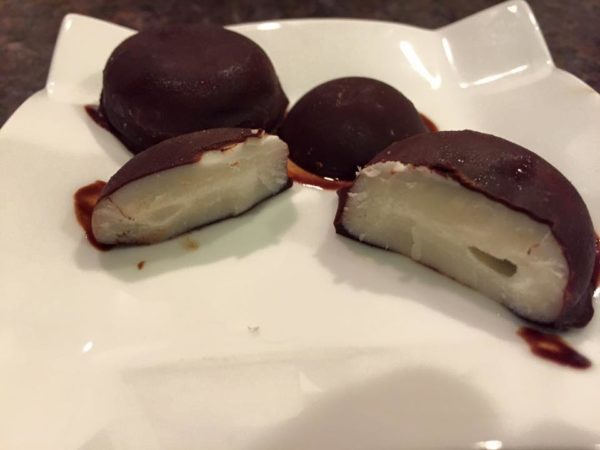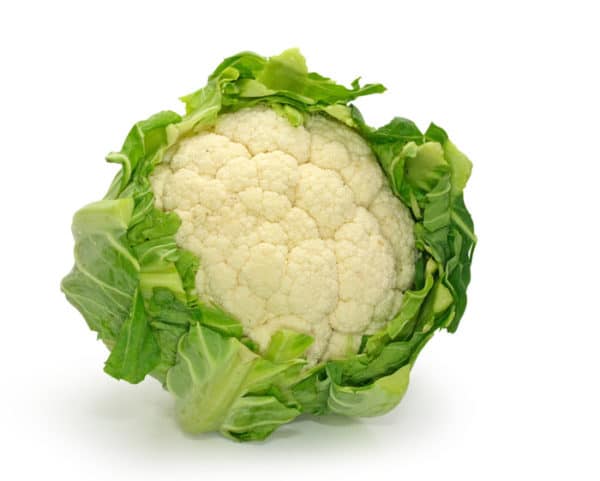

GERD, aka heartburn, is most often caused by too little acid in the stomach, rather than too much acid, as most people believe.
When there is not enough acid to break down the food you eat, it tends to sit in your stomach too long. If the lower esophageal valve is not functioning properly, the stomach contents can rise up into the esophagus.
Your esophagus doesn’t have the protective mucous membrane the stomach does and the acidic contents of the stomach burn, eventually eroding the lining and resulting in reflux esophagitis.
What are the symptoms of GERD to look for when taking your client’s history?
Many clients will not want to answer a lot of questions; they just want a solution to the heartburn! But getting answers to these questions is key in determining if GERD is truly the problem.
Find out if your client is experiencing these symptoms:
- Food feels trapped behind the breastbone.
- Burning pain in the chest, worse with bending, lying down, and at night.
- Nausea after eating (especially if they are also experiencing pain when lying down).
- Difficulty swallowing.
- Hoarseness or changes in voice.
- Regurgitation of food.
- Sore throat after eating.
- Possibly, coughing, or wheezing.
If your client is experiencing one or more of these symptoms, time to focus your detective’s magnifying glass on their lifestyle and habits to find the possible cause.
What are possible causes of GERD to look for when taking your client’s history?
- Overeating: When someone is overeating and their stomach is super full, it’s likely that the contents are going to regurgitate back up into their esophagus.
- Vigorous exercise after eating.
- Alcohol consumption: Drinking alcohol affects the LES, the lower esophageal sphincter. It keeps it from staying closed which causes it to allow contents to go back up.
- Caffeine consumption (coffee, chocolate): Affects the LES the same as alcohol.
- Tight garments: Wearing tight garments, especially wearing really tight items on the top, such as a bra that’s really tight, can cause the stomach to regurgitate. Really tight waistbands can also cause some regurgitation.
- Eating while or right before reclining: If someone eats right before they lay down, the sphincter may not really shut down all the way, so contents may start to roll up.
- Smoking: Smoking affects everything. It damages just about all kinds of tissue. Get your client to stop smoking.
- Stress: When cortisol levels go up, the body is being prepared for fight-flight. What happens? Sphincters stop functioning properly. The enzymes go down. The secretions in the stomach decrease. Naturally, in these times of stress, a person is more likely to have GERD.
- Eating a lot of processed foods (excess sugar and refined carbohydrates): If someone eats junk they are not getting the minerals that their body needs to create enough stomach secretions.
- Medications: Certain drugs affect the stomach secretions and can turn off or turn down the secretion of hydrochloric acid, pepsinogen, and the mucus.
- Parasites: Bugs, like H. pylori, affect the secretions in the stomach. Also bacteria and viruses.
- Food allergies and sensitivities.
Evaluation strategies helpful for identifying GERD
Along with a thorough history and review of symptoms, there are tests that can be done.
- Blood chemistry: will show a lot of lows, including iron, ferritin, protein, globulin, phosphorus, BUN, calcium, and vitamin B12.
- CBC: high MCV (B12 is low).
- H. pylori testing: blood or stool; (BioHealth Labs has a very sensitive stool test) to confirm presence of H. pylori.
- Zinc assay test: to determine low zinc. Low zinc will indicate low hydrochloric acid levels.
- Food sensitivity testing. Low stomach acid levels compromise pepsin, which means incomplete digestion of proteins. This can contribute significantly to food allergies
.
- Gastro-test (hdcorp.com) to assess stomach pH; basically, it’s a piece of pH paper attached to a string and you can actually swallow it down. You need to have a partner doing it with you so they can pull the string back up, and you have to bypass your gag reflex. But you put it down there and it measures the pH of your stomach. It’s an inexpensive way to do it.
- Urinary indican: tests for inefficient protein digestion (due to low stomach acid).
How to help your client heal from GERD
The top things I say to my own clients are to CHEW their food (a lot), to not overeat, and to relax while they eat. Also, not to eat late at night and to not consume fluids with their meals.
A lot of it is HABITS that must be developed! Habits can heal!
Another thing to consider is whether or not your client might have a hiatal hernia. If they report saying they feel full after eating only a few bites, or if they say the often burp up their food after eating, there is a strong chance they could have a hiatal hernia. This happens when the hole that the esophagus goes through in the back of the diaphragm becomes enlarged. When this happens, the stomach can slide through the hole, becoming a hiatal hernia.
If the stomach gets stuck in the hole, the first thing to help them to do is to get the stomach back out. Here is the procedure I recommend:
- Drink about a glass of either room temperature or slightly warm water when you get out of bed first thing in the morning. (No tea, no juice, no cold water—just warm water.)
- While standing, bring your arms straight out from your sides and bend your elbows so your hands are touching your chest.
- Stand up on your toes as high as possible and drop. You should get a pretty good jolt. Drop down like this 10 times in a row.
- Then, while standing with your arms up, pant short quick breaths for about 15 seconds. That’s it.
The warm water creates a weight in your stomach plus, because it’s warm it won’t create any cramping, but actually relaxes the stomach. Stretching the arms out stretches and opens up the diaphragm, opening up the hole in the back. Then, when you jump down, it jerks the stomach out of the hole. The short breaths will help the diaphragm muscle to close the hole. You need to do this exercise everyday to strengthen the area and make the hiatal hernia less likely to come back. That might put an end to the reflux issues happening within your body.
Here is a video showing the exercise process on how to fix the hiatal hernia
Here are some other things to recommend:
- Avoid excessively cold beverages. Have some warm beverage before meals.
- Avoid caffeine, sugar, and gluten (if not permanently, at least while healing).
- Avoid foods that may be irritating during healing, such as: chocolate, citrus, tomatoes, onions, garlic, peppers, and peppermint.
- Reduce salt use.
- Increase mucilaginous foods like flax seed, chia seed, and psyllium.
- Increase probiotic foods like sauerkraut, kefir, and cultured vegetables.
- Eat at least 6 ounces of carrots a day, or drink a cup or two of the juice
- Check out my blog on low stomach acid for other tips
And finally, here are some herbs and nutrients you can consider to help your client:
- Aloe Vera juice
- Apple cider vinegar (1 tablespoon in 8 ounces water): even though it is acidic, it helps!
- Betaine HCl treatment (with caution and supervision, and I don’t suggest trying this unless you have 5 to 10 years’ experience under your belt!)
- Chamomile
- Cinnamon
- Comfrey
- Deglycyrrhizinated licorice (DGL)
- D-limonene extract
- Fenugreek
- Ginger
- Irish Moss
- Jujube dates
- Marshmallow
- Probiotics
- Slippery elm
- Vitamin A
- Vitamin B5 (pantothenic acid)
- Vitamin C
- Vitamin B1: helps restore and fluff up the mucous lining.
Any of the herbs you can find on Mountain Rose Herbs are awesome.
If you want to learn more, my Nutritional Endocrinology Practitioner Training (NEPT) offers over 200 hours of training and mentorship that can impact your client’s ability to heal. Learn more about the NEPT training and other practitioner-focused resources, programs, and tools!
I’m always interested in feedback on what has worked well for your clients. Please COMMENT and let me know!
Share this:

Are you feeling stuck?
Do you feel as if something is missing from your practice that's keeping you from delivering breakthrough outcomes for your clients?.
Recent Posts
Our Programs
Nutritional Endocrinology Practitioner Training (NEPT)
The Mastery and Certification tier is our flagship program and provides everything you need to feel confident as a practitioner who knows how to get results that lead to healthy and happy clients.
Functional Assessment Mastery
Explore the relationships between the most important hormones and their relationship with nutrition.
Functional Nutrition Mastery
Learn how to support your clients to eat and supplement in a way that reduces and eliminates chronic symptoms.
Medical Disclaimer: The information on this website is not intended to replace a one-on-one relationship with a qualified health care professional and is not intended as medical advice. It is intended as a sharing of knowledge and information from the research and experience of Dr. Ritamarie Loscalzo, drritamarie.com, and the experts who have contributed. We encourage you to make your own health care decisions based upon your research and in partnership with a qualified health care professional.
Disclosure: Sometimes (but not always), when I share resources in my programs, newsletter, and on my website, I'm using an affiliate link, which means I do make money if you buy. My credibility is extremely important to me; therefore, I only endorse the products, services, and people I believe in. DrRitamarie.com is independently owned and the opinions expressed here are my own.
Click here to see our Privacy Policy.













Dr. Rita Marie! Thank you for this article. I was searching for info about h pylori and decided to read this. You answered my question! I have been dealing with low zinc and recently started taking pepsin. It has helped my skin heal and having better liver gall bladder function. I had no idea of the zinc Hcl correlation. Kudos sister